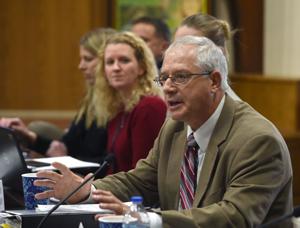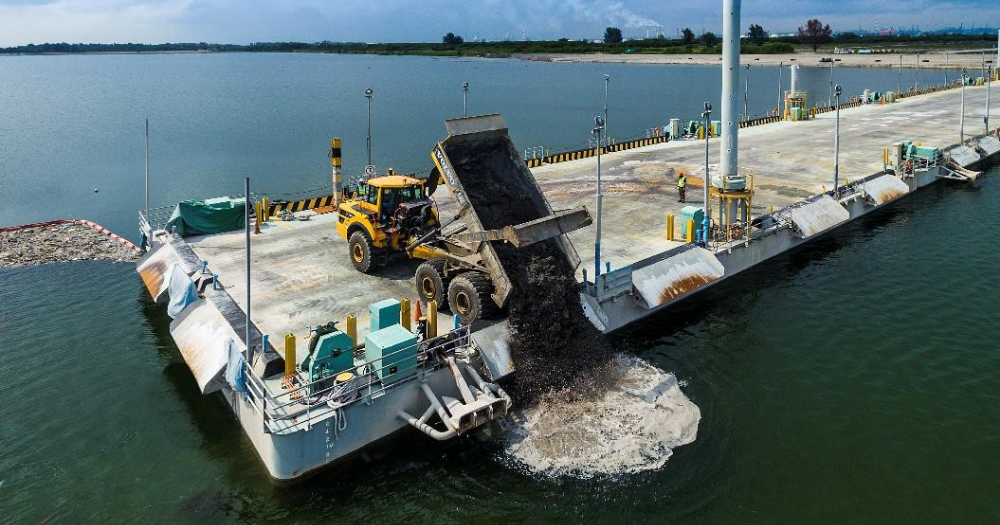
In 1830, the first fully steam-powered railway in the world was built between Manchester and Liverpool. But almost two centuries on, much of what once stood as a monument to modernity and innovation has fallen into disrepair – as has the social fabric of Manchester itself, where one in 74 people are currently experiencing homelessness . The A Bed Every Night scheme, launched by mayor of Greater Manchester Andy Burnham in 2018 and expanded last year, aims to provide emergency accommodation and support to anyone sleeping rough in the region.
Burnham has also committed to implementing the principles of Housing First , whereby people experiencing homelessness are provided with housing and support as the first step in their journey into permanent accommodation. But the latest figures reveal that there are still around 149 people sleeping rough in the area each night – up from 102 in 2022. Get the latest news and insight into how the Big Issue magazine is made by signing up for the Inside Big Issue newsletter Local charity Embassy aims to combat this issue – and to make use of Manchester’s historic rail infrastructure in the process.

Led by co-founder and director Sid Williams, they are now embarking on the construction of Embassy Village: 40 high-quality homes, along with a village hall and spaces for exercise, gardening and socialising, under railway arches. All will be occupied by people with experience of homelessness, who will also be provided with wraparound support and skills training. “Embassy really began as a pragmatic response to increasing rough sleeping ,” says Williams.
“I’ve volunteered with other, much longer-standing homelessness charities in Manchester since about 2004, when I was 19.” Williams spent six years working with Christian charity The Message Trust , running a “youth centre on wheels” on a double-decker bus. Through this work, he met Burnham, who introduced him to Tim Heatley, co-founder of Mancunian property development company Capital & Centric – one of the subjects of 2020 BBC Two documentary Manctopia: Billion Pound Property Boom .
In 2019, through funding from Heatley, Williams was able to buy what had been Coldplay’s tour bus and convert it into an emergency shelter – and retained its luxuries in the process. “We’re not here to do things on a shoestring. We’re here to do things really well,” says Williams, emphasising that people living in poverty have as much right to comfort as the most affluent.
“Each of the residents had a memory foam mattress, night light, all curtained off, and then we had a cinema upstairs and a dining area and a little kitchenette.” Andy Burnham wants to give homes to Manchester’s rough sleepers in ‘sea change for housing’ Has Manchester found an innovative way to tackle begging? Housing First is a success in other countries – so why can’t we make it work in the UK? At that time, the average wait for council housing in Manchester was five and a half years. Now, it’s between 10 and 15.
“So, we kind of thought, well, why don’t we just get [people experiencing homelessness] in with private landlords ? And so again naively, we thought, well if we get them a full-time job, a private landlord will take them with a first month’s rent deposit and a job, surely,” Williams says. This led to partnerships with 22 companies who offer full-time roles to Embassy’s service users, and “75% of people who got a job [through the scheme] stuck with it for at least a year,” with others moving into other employment or further or higher education. But despite these successes, only “one in 25 landlords were willing to even give it a punt,” Williams says.
So he decided to build his own housing. He partnered again with Capital & Centric, as well as Peel Holdings, who built Manchester’s iconic Trafford Centre and own the Ship Canal, and 57 volunteers who worked pro bono on the design of the village during the Covid-19 lockdowns, during which time the bus shelter had to close. At this point, “sadly we said goodbye to the bus,” Williams says, “but in all honesty, I think we were beginning to realise that a shelter wasn’t what we wanted to do.
There is definitely a place for shelters, but I think we realised that we were really frustrated for the guys we were housing because we thought, gosh, we just don’t want them to languish in a shelter with us. We want to do something really pragmatic.” By providing more permanent accommodation, he realised, he and his team would be able to not only house people, but also “do things that we couldn’t do before on the bus, like teach people to cook, for example, or go shopping together and practice those skills and teach people to budget properly.
And because people will be renting with us, we will actually be able to end people’s homelessness on day one.” Learn more or donate towards the cost of building Embassy Village. Do you have a story to tell or opinions to share about this? Get in touch and tell us more .
Big Issue exists to give homeless and marginalised people the opportunity to earn an income. To support our work buy a copy of the magazine or get the app from the App Store or Google Play . Share Charity From the magazine Homelessness Housing Housing crisis housing first Manchester.











